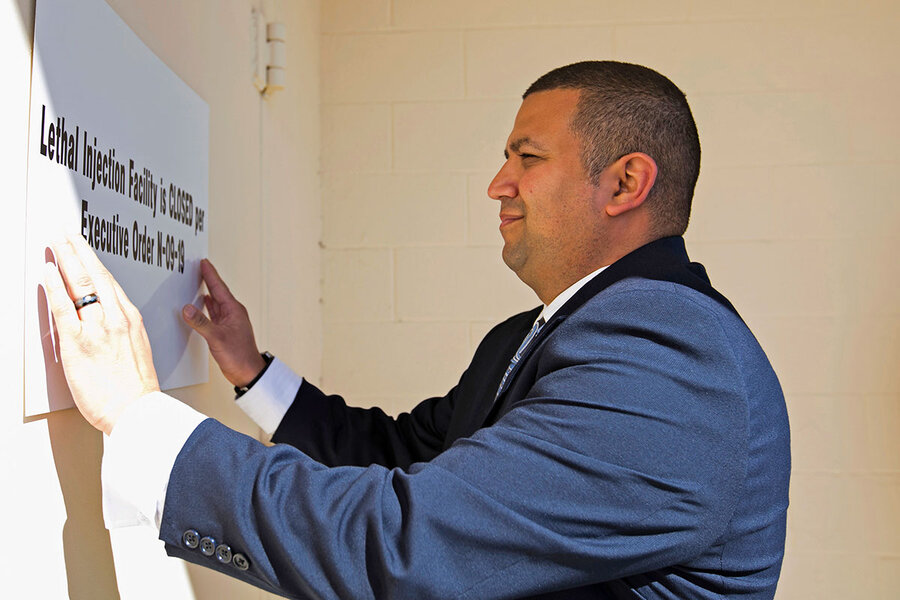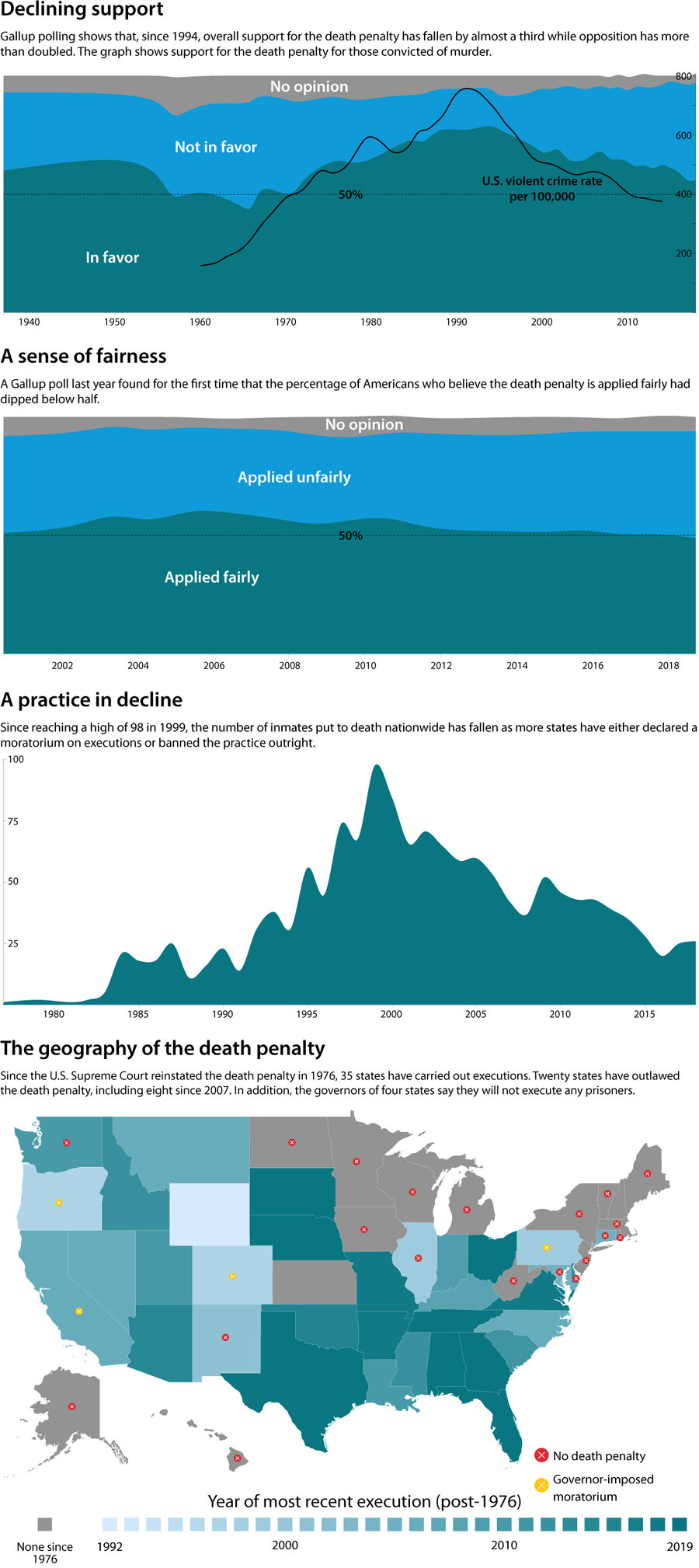California shuts down death row. Signs a red state may be next.
Loading...
| Sacramento, Calif.
California Gov. Gavin Newsom surprised Democrats and Republicans alike this week by announcing a halt to executions in the state with the country’s largest death row, a move that follows similar actions in recent years by governors in Washington, Colorado, Oregon, and Pennsylvania.
His decision has drawn criticism from President Donald Trump and California Republicans, among others, yet bipartisan support for abolishing capital punishment appears on the rise.
Republicans in several red states, including Kentucky, Montana, and Wyoming, have sponsored bills this year to end executions. Beyond misgivings about the morality of taking a life and whether the death penalty deters crime, some conservative lawmakers have raised questions about the spiraling cost of litigating capital cases.
Why We Wrote This
As with criminal justice reform, the death penalty may be a growing area of bipartisan agreement among lawmakers. So far this year, Republicans in Kentucky, Montana, and Wyoming have sponsored bills to end executions.
Last month in Montana, where the most recent execution occurred in 2006, Republican legislator Mike Hopkins introduced a bill to abolish the practice. He called the death penalty “another form of life in prison that just so happens to cost the state of Montana a lot more money than regular life in prison without the possibility of parole.”
Democrats share similar concerns, and they further question whether states apply capital punishment disproportionately against black and Latino defendants. Washington’s state Supreme Court cited that disparity in striking down the death penalty last fall, four years after Gov. Jay Inslee, a Democrat who is running for president, banned executions.
Another factor uniting Republicans and Democrats has been the steadily climbing number of prisoners sentenced to death who were later exonerated. A Republican lawmaker in Wyoming, where an effort to repeal the death penalty narrowly failed last month, told the political publication The Hill that the 164 inmates released from death row since 1973 are proof that “we get it wrong.”
Five of those inmates were freed in California, and Governor Newsom invoked the possibility of wrongful convictions in explaining his rationale Wednesday. Referring to the state’s 737 death-row inmates, he said, “I cannot sign off on executing hundreds and hundreds of human beings, knowing – knowing – that among them are people who are innocent.”
Both Pew and Gallup report that, while support for the death penalty among Republicans remains high, with about three-quarters in favor, the number has declined by 10 points in recent years. About 52 percent of independents and 35 percent of Democrats support capital punishment, according to Pew.
Twenty states have outlawed the death penalty, including eight since 2007. California is one of 11 states with capital punishment that have gone more than a decade without an execution.
As lawmakers in red and blue states weigh repeal legislation, the annual number of executions in the United States has fallen by about three-quarters since reaching a high of 98 in 1999. In politics and practice, there appears to be waning interest in tinkering with what late U.S. Supreme Court Justice Harry Blackmun called “the machinery of death.”










